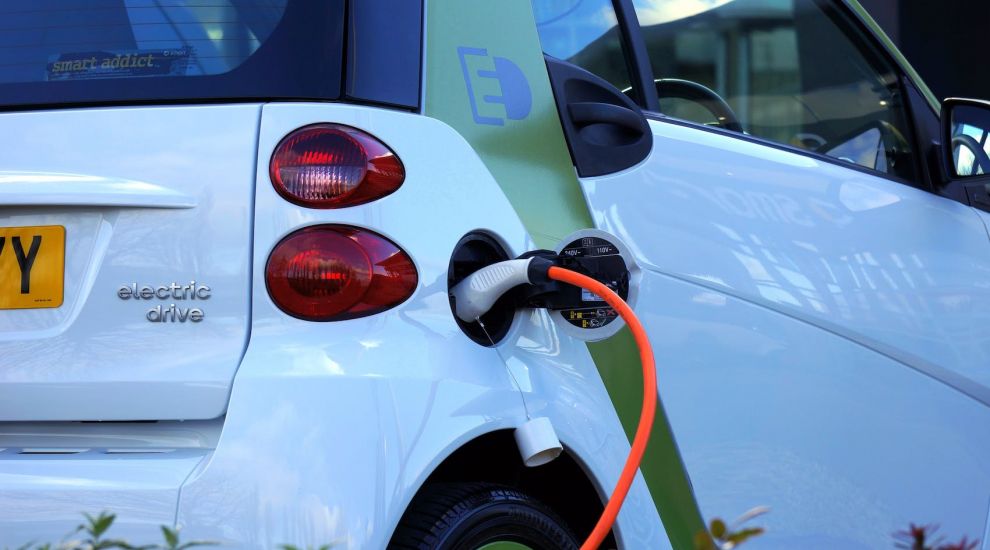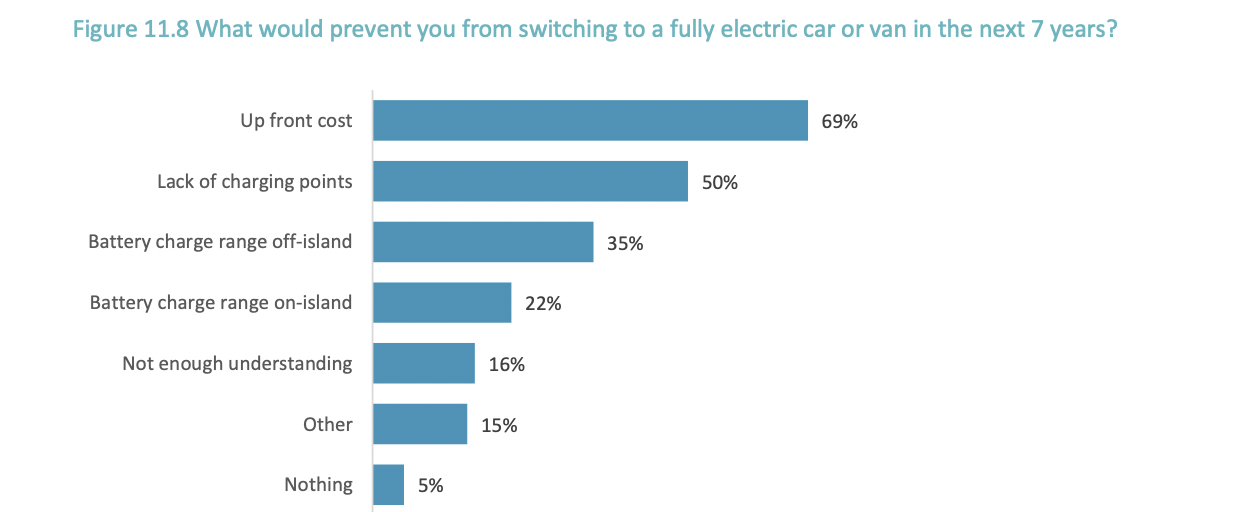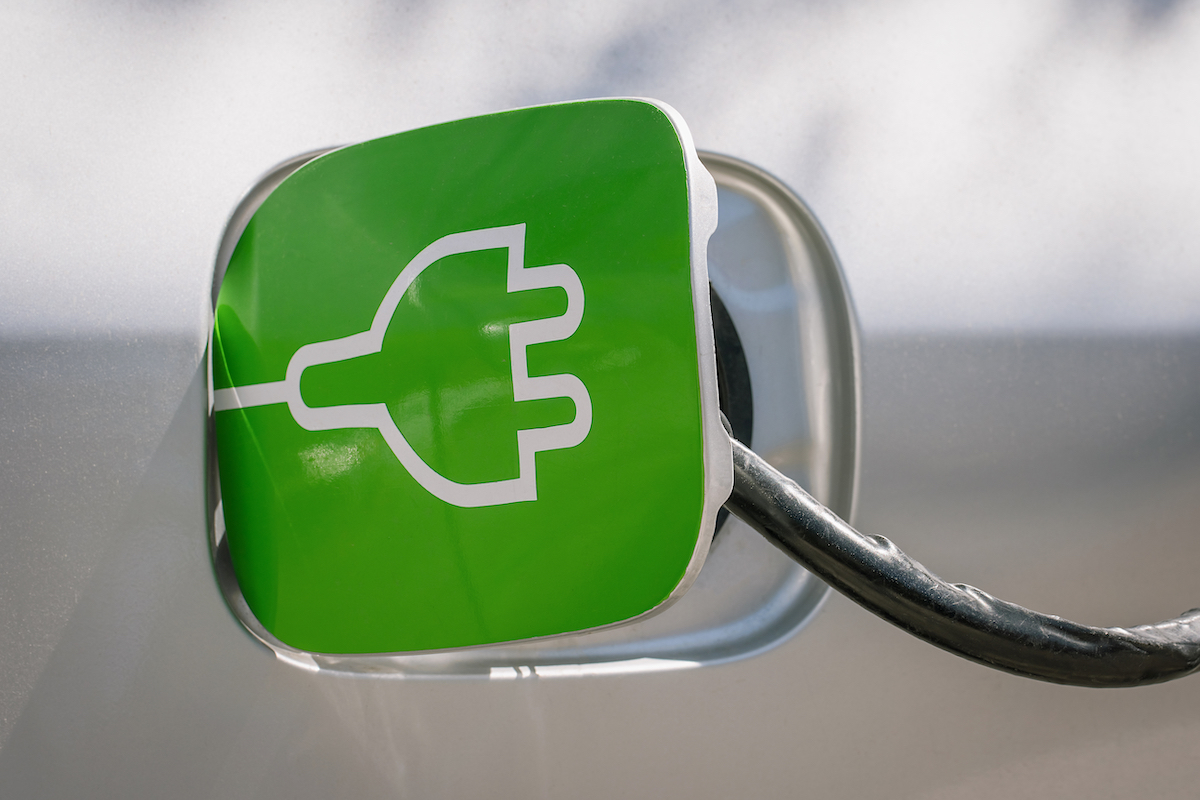


A third of households say they are likely to switch to electric vehicles by 2030, when the sale of new petrol and diesel vehicles will be banned – but the main barrier to switching is cost.
This data was revealed in the latest Opinions and Lifestyle Survey by Statistics Jersey, where 1,500 people answered various questions on island life.
The large-scale adoption of electric vehicles is a key part of Jersey's Carbon Neutral Roadmap to achieve net-zero emissions by 2030.
The Roadmap proposes bringing into force legislation that prohibits the importation and registration of petrol and diesel cars and small vans in 2030 “at the latest”.

Pictured: A graph representing islanders' intentions to switch to an electric vehicle by 2030. (Statistics Jersey)
It also seeks to extend this to other categories of vehicles between 2030 and 2040.
This is due to their potential as a relatively low-carbon alternative to fossil-fuelled vehicles, with transport being the biggest source of emissions (41%) in Jersey.
Currently, only 7% of Jersey residents have hybrid cars and 4% have electric ones, but these numbers have grown over recent years.
According to figures from a report on the Sustainable Transport Policy, electric vehicle ownership increased by over 30% from 1,365 in 2021 to 1,789 in 2022, and by another 25% to 2,245 in 2023.

Pictured: A table from the Sustainable Transport Policy Report shows the growth in electric vehicles over recent years. (gov.je)
The Statistics Jersey report found that one-third (35%) of households said they were likely to switch to a fully electric vehicle by 2030, compared with half (48%) who said they were unlikely.
Meanwhile, 17% of respondents said they didn't know.
The report also found that the likelihood of switching to electric vehicles varies with income and living situation.
The main barrier was cost, with 69% of adults saying the upfront cost would prevent them from switching to a fully electric vehicle.

Pictured: Almost 70% of respondents said that the main barrier to switching to electric vehicles was the upfront cost. (Statistics Jersey)
Government grants currently cover 35% of the electric vehicle cost, up to a maximum of £3,500, and can be used on electric cars or vans costing up to £40,000 through approved retailers in the island.
However, the average cost of a new electric car in the UK stands at £50,000, according to The Times, with prices generally ranging between £22,225 and £157,160.
By contrast, the price of a new non-electric car in the UK ranges from £19,000 to £32,000
The Jersey Opinions and Lifestyle Survey also revealed that the existence of a price barrier for electric vehicles is related to an individual's financial circumstances, with 66% of owner-occupier households citing upfront cost as a barrier to switching, compared to 77% of social rental households.
In addition, those who were living in rural and detached homes were significantly more likely to switch than those who lived in flats in town.
Half of the respondents said that the lack of charging points would prevent them from switching to electric vehicles – an issue which was raised by the Chair of the Environment, Infrastructure and Housing Scrutiny Panel last year.
There are 109 public charging points across the island, all installed by the JEC. This represents one public charger per 18 electric vehicles.

Pictured: As of last summer, there were 109 public charging points across the island, all installed by the JEC, representing one public charger per 18 electric vehicles.
In June, former Environment Minister Steve Luce said: “In the not very distant future, people will be looking to charge their cars everywhere, and while at the moment most islanders who buy an electric car probably have a garage or space to charge it, that won’t be the case for ever.
“The Government’s answer is to say that the JEC is installing charging points, but this is a private company and the JEC aren’t installing them in the street.
“Also, they are not obliged to ensure a Government decision is achievable.
“If we’re serious about achieving carbon neutrality, then someone has to start working on it now.
"It’s not that long until someone wanting a new car will have to buy an electric one.”
However, then-Infrastructure Minister Tom Binet said that charger capacity was "running ahead of vehicle sales" at the time.
Comments
Comments on this story express the views of the commentator only, not Bailiwick Publishing. We are unable to guarantee the accuracy of any of those comments.